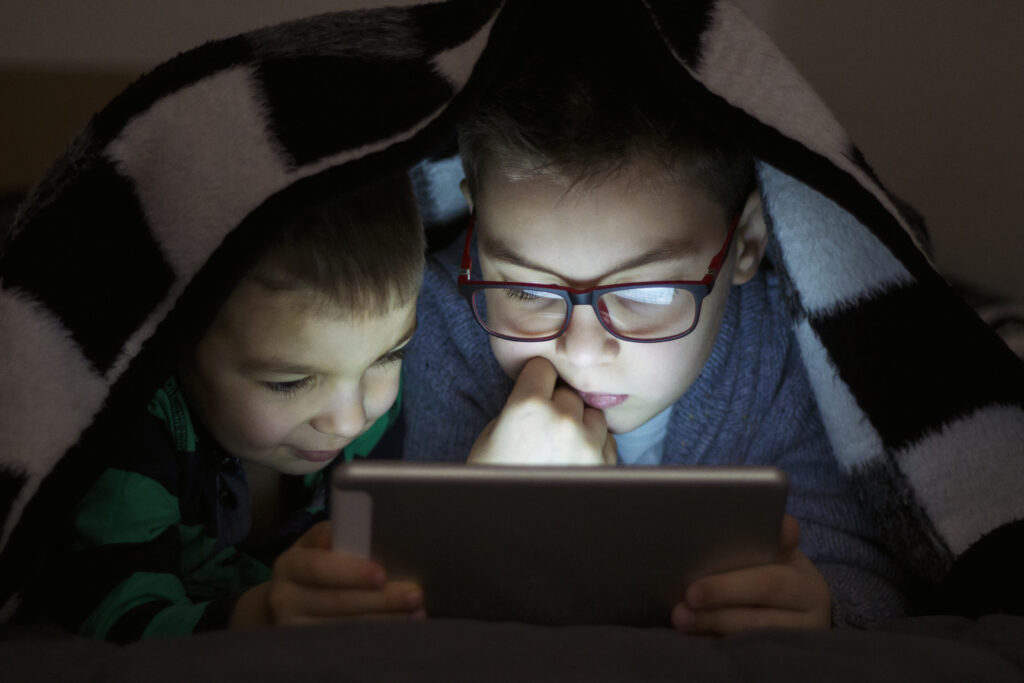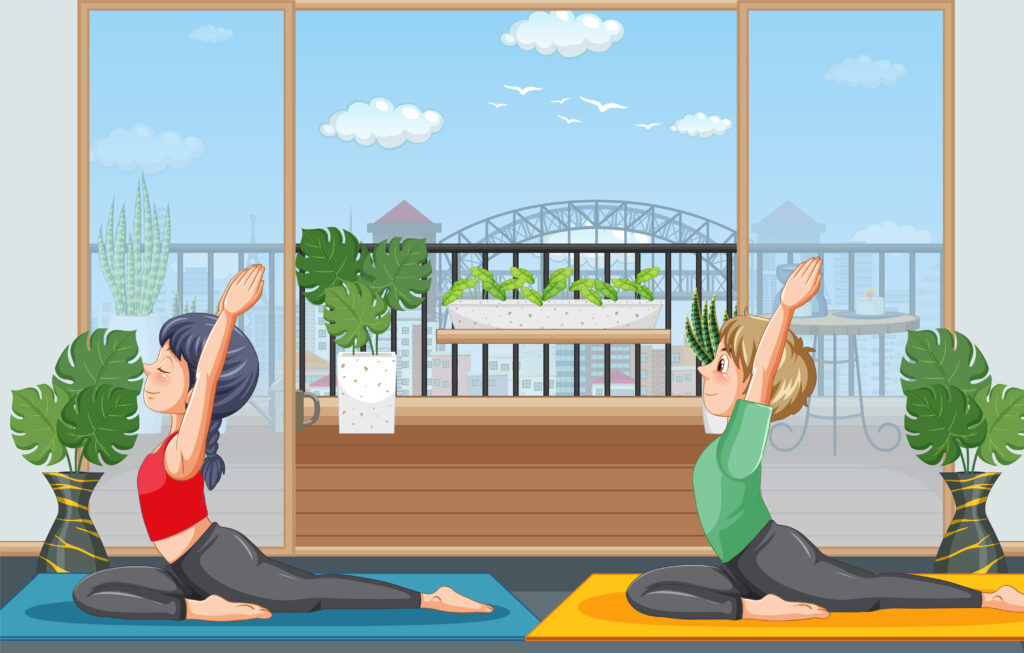Are you watching Instagram Reels, scrolling through YouTube Shorts, or using other social media platforms that many people around the world are addicted to? If so, this blog is for you and your valuable health. Today we will discuss the negative effect of excessive screen time on health & how it is related to anxiety, depression, stress, and many other diseases. I’ve been writing this blog for the last five minutes, but prior to this, I spent eight hours at the office. After returning home, I scrolled through all my social media apps for at least half an hour. During the eight hours at work, my screen time was not less than five hours. It will take me at least an hour and a half to complete this blog. After posting it, I plan to scroll through my social media apps again, have dinner, and spend another half hour on my screens before going to sleep. By the end of the day, my total screen time will be around eight hours, which is significantly more than what is recommended, whether we realize it or not. However, without your consent, your body is paying the price. The long-term consequences of excessive screen time can have a more serious impact on your health than you might imagine.
Negative Effect of Excessive Screen Time on Your Health & Tips to Overcome
- Impact on Your Eyes: Your eyes suffer most from excessive screen time. The effect of continuous watching on screen is immediate. Long-term screen staring can cause Computer Vision Syndrome or Digital Eye Strain. Headaches, impaired vision, dryness, and discomfort are some symptoms. It happens because staring at screens causes us to blink less often, which can induce eye dryness. You can avoid these problems by following a few rules. Make a habit of taking a break every 15-20 minutes and walk or see outside for a few seconds. Doing this will provide you and your eyes a much-needed break from screen time. Use blue light filters and adjust screen brightness to lessen eye strain. Also, ensure your screen is at eye level to prevent neck strain, which exacerbates eye pain.
- Sleep Cycle Disruption: Excessive screen time can lead to sleep cycle disorder. Melatonin is the hormone that controls sleep, and the blue light that screens emit inhibits its production. Long-term screen time in the evening can therefore result in poorer sleep quality and trouble falling asleep. You can overcome this problem by avoiding digital screens at least 1 to 1.5 hours before going to bed. In the evening, turn your gadgets to night mode or use apps that block blue light. Engaging in relaxing activities such as reading, meditating, or having conversations with loved ones can help calm both your body and mind, ultimately supporting healthier sleep.
- Physical Health Issues: If you are used to working on a digital screen continuously without taking regular breaks can harm you more than you think. It can lead to bad posture, which frequently results in shoulder tightness, back pain, and neck pain. Also, the more you sit in front of a screen, the less you involve yourself in physical activity, eventually raising the chance of developing cardiovascular problems, obesity, and other long-term illnesses. You can always improve your health by taking regular breaks, stretching, and walking around. Purchase an ergonomic chair and sit with proper posture while sitting.
- Anxiety & Depression: The impact of excessive screen time on mental health is very concerning. Research says that too much consumption of negative content from social media can increase anxiety, stress and, depression. It also cause FOMO (Fear Of Missing Out) and social isolation due to constant exposure to curated life of others. The harmful effects of screens, whether they be used for entertainment, gaming, or social media, can lead to emotional dependency and make it more difficult to detach and interact with people in real life. To overcome this problem, talk to people around you rather than spending time in various social media apps or reduce the screen time you spend doing nothing important. Turn off notifications and schedule offline activities to take regular digital detoxes. Take part in mindfulness exercises to lower stress and anxiety, including journaling or meditation.
- Reduced Productivity & Impaired Mental Ability: Though screens are useful for learning and work, excessive use can reduce mental capability affecting your focus and productivity. Multitasking between various devices at the same time also shortens the attention span and reduces output. As far as possible, multitasking should be avoided. Regular breaks and time-bound use can help you manage these issues effectively.
Balancing Between Screen Time & Physical Activities
In this digital era, living without screen time is an impossible task. From navigation maps to banking, and entertainment to work, everything can be accessed through digital screens such as mobile phones, laptops, personal computers, and television. We all need mobile phones now and then to access various interfaces. While screens play a significant role in our daily lives, it is important to understand the harmful effects of excessive screen time. You may greatly enhance your physical and mental health by being aware of the possible health hazards and taking proactive measures to reduce screen time. Here are a few tips to reduce screen time, hope these tips will help you out:
- Set a daily limit for screen time and adhere to them.
- Take frequent breaks in between to give your eyes and mind a rest.
- Fix a time each day or a full day each week for digital detox.
- Make time for meditation and socialize yourself with others.
- Don’t forget to physically exercise your body at least half an hour each day.
- Give importance to quality time with your family.
Call to Action
Are you ready to reduce screen time for the well-being of your body & mind? The very first step towards a healthy life is to understand the negative impact of excessive screen time on mind & health. I have been through the consequences of excessive screen time. Sometimes it becomes difficult to reduce screen time due to work pressure, but you can always make a balance by taking regular breaks, correcting posture, or setting a screen time limit. I hope this blog will encourage you to subtract the screen time, motivate you to make time for physical exercise, inspire you to meditate and learn the importance of family and society.




